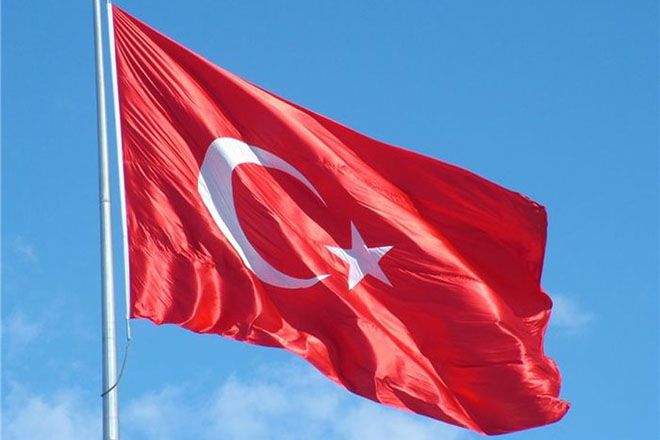Turkey expects a positive remark from U.S. President Barack Obama over the 1915 events in his upcoming speech on April 24, Turkey's EU Minister Volkan Bozkir has said, Anadolu agency reported.
Bozkir spoke while visiting Kocamustafapasa Surp Kevork Armenian Church in Istanbul on Tuesday along with AK Party Turkish-Armenian election candidate Markar Esayan.
Referring to the ongoing controversy over 1915 he said: "Our goal is a fair and common memory."
Bozkir touched on Turkish prime minister Ahmet Davutoglu's latest remarks, claiming that the premier's statement had been one of the most important announcements made by the Turkish Republic.
On Monday, Davutoglu offered his condolences to the grandchildren of Ottoman Armenians who lost their lives during World War I.
"Our common responsibility as the grandsons of two different peoples who shared the same joy and sorrow is to relieve the pain of the past century and rebuild our humanitarian bond," he said.
His comments came in a statement in which he said the deaths of Ottoman Armenians would be commemorated on April 24 in Turkey in a religious ceremony to be organized by the Armenian Patriarchate.
"We regard the 1915 events as a bad incident, but we oppose this historical event being turned into a political argument," Bozkir said.
What happened in 1915?
World War I was a global disaster that left 15 million people dead and another 20 million injured.
The empires of the Ottomans, Austria-Hungary and Russia collapsed and boundaries were remapped.
Millions of people had to leave their homes - a common fate for the people who formed the Ottoman Empire, including Armenians.
During the war, some Armenian nationalists took advantage of the fact that the Ottoman and Russian forces were fighting each other and collaborated with the Russian army, with the aim of creating an ethnically homogenous Armenian homeland.
When the Russian army invaded eastern Anatolia, some volunteer Armenian units in Russia and the Ottoman Empire supported the invasion. Some Armenian officials in the Ottoman army switched sides and joined the invading Russian army against the Turks.
Also, some Armenian armed groups massacred civilians during the Russian invasion.
In response, the Ottoman government tried to convince Armenian representatives and opinion leaders to stop the violence, but with no favorable result. The government then decided to shut down the Armenian revolutionary committees and arrest or deport some well-known figures on April 24, 1915 - a date which would later be selected to hold activities commemorating the so-called "Armenian genocide."
On May 27, 1915, the Ottoman government ordered the Armenian population residing in or near the war zone, as well as those collaborating with the Russian army, to be relocated to the southern Ottoman provinces.
War-time conditions, famine, epidemics, ongoing internal conflicts and local groups seeking to take revenge, left a number of Armenians dead, although the Ottoman government had made careful plans for their safe transfer and tried to meet their humanitarian needs.
Historical documents clearly show that the Ottoman government, not only did not intend for these tragedies to take place, but also punished offenders who committed crimes against the relocated Armenians.
Officials and civilians who were found guilty of disobeying the government's instructions to conduct the relocation in a secure way, were tried and sentenced to capital punishment, long before the end of World War I.
Russia, meanwhile, exited the battle after The Bolshevik Revolution of 1917 and left the region to Armenian militias, who invaded many Ottoman residential areas using Russian arms.
With The Treaty of Sevres, signed on Aug. 10, 1920, the Ottoman Empire was forced to allow an Armenian state in eastern Anatolia. The treaty, however, did not come into effect.
Consequently, eastern Anatolia was invaded again by Armenian militias, who were rebuffed in December 1920.
The Treaty of Alexandropol, signed on Dec. 2, 1920, created a new boundary between today's Armenia and Turkey, but since Armenia was part of Russia, the treaty was not implemented.
With The Treaty of Kars signed on Oct.13, 1921, the Turkish- Armenian border was specified again.
After Armenia's independence from the Soviet Union in 1991, the country said it no longer recognized the Treaty of Kars.






